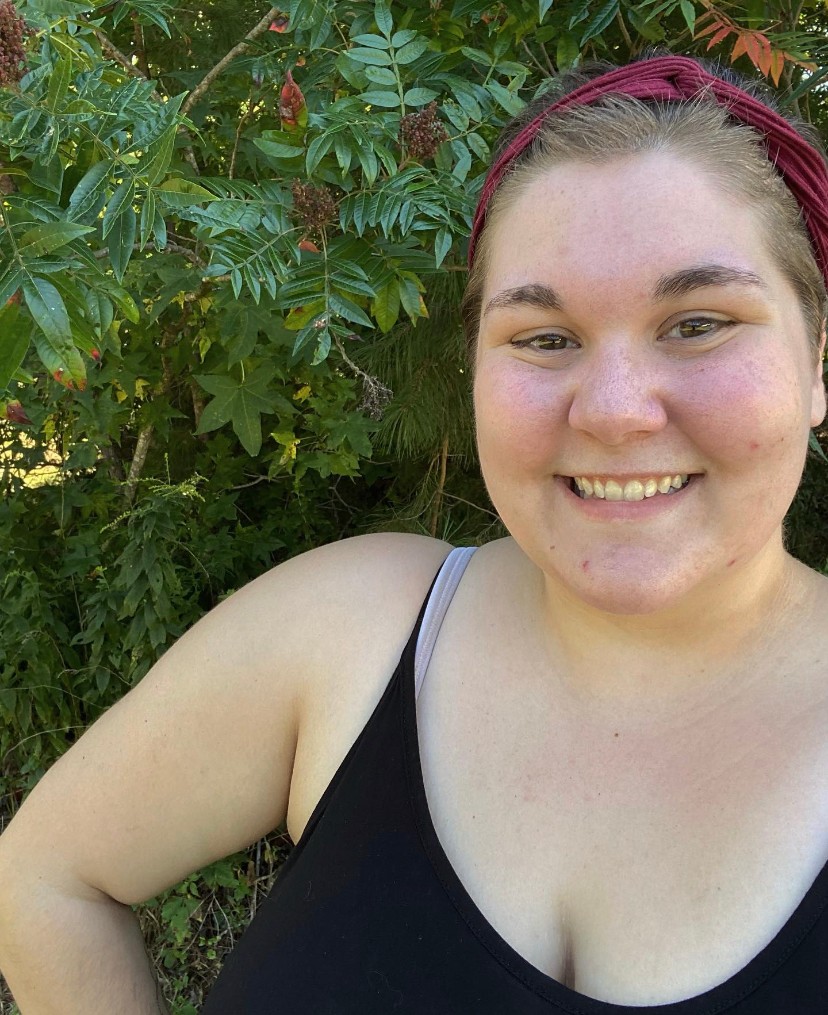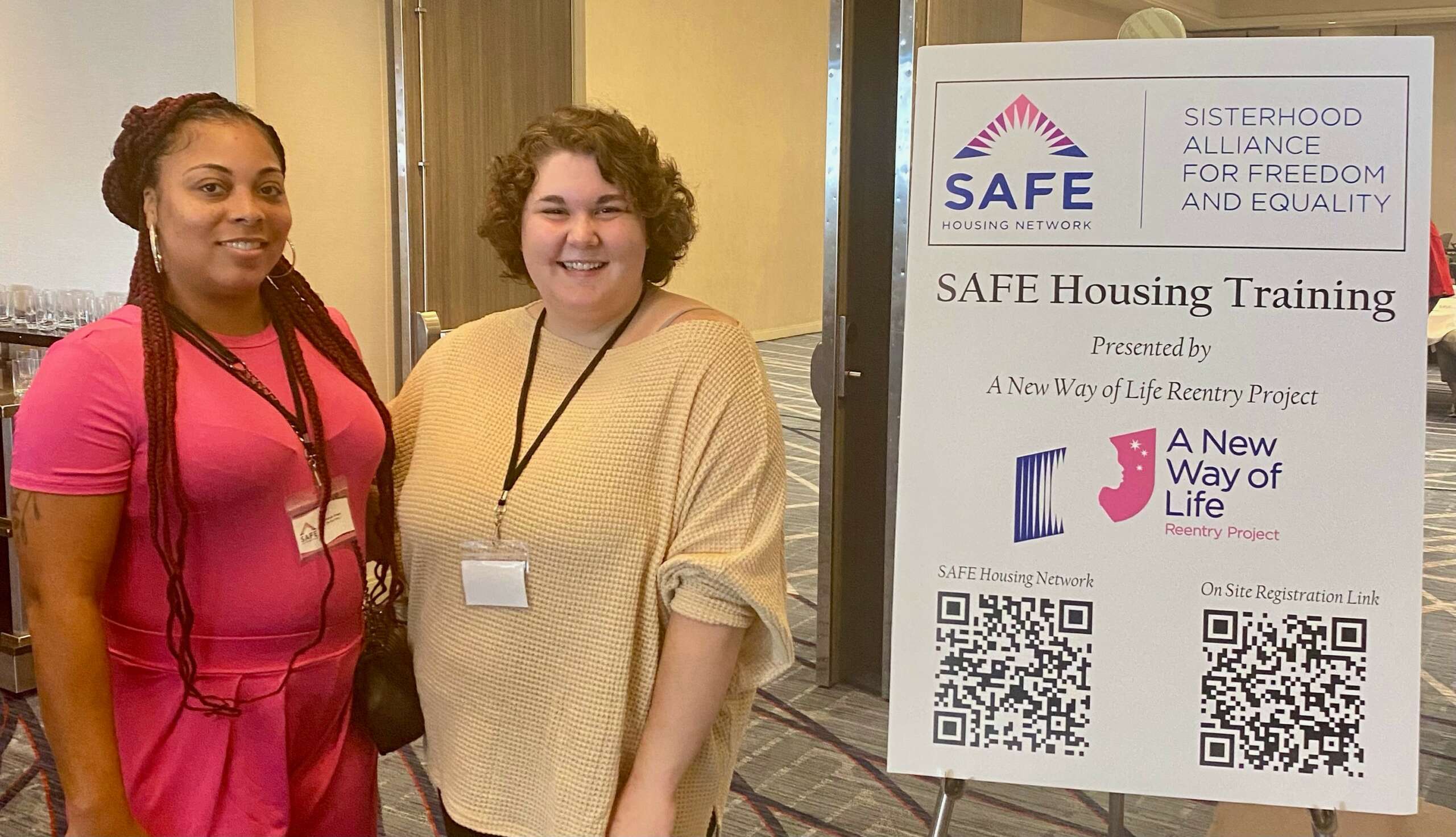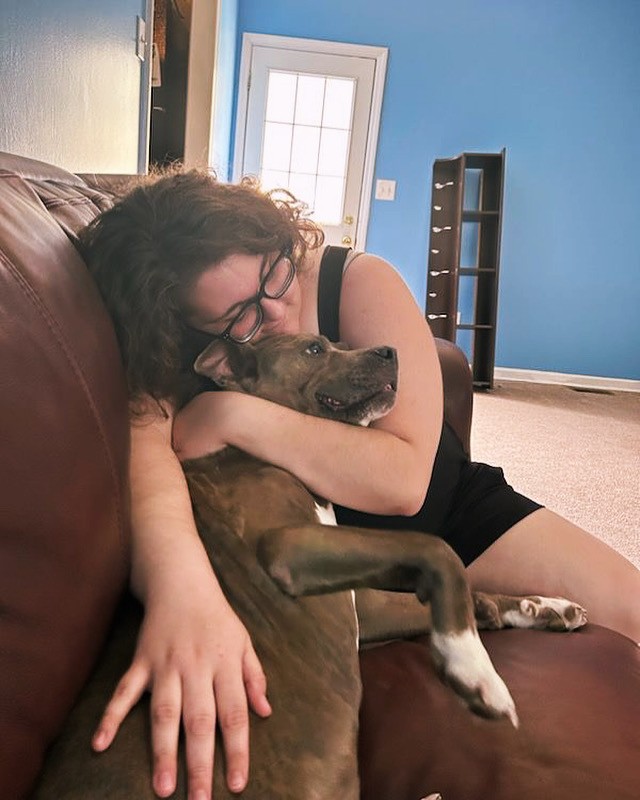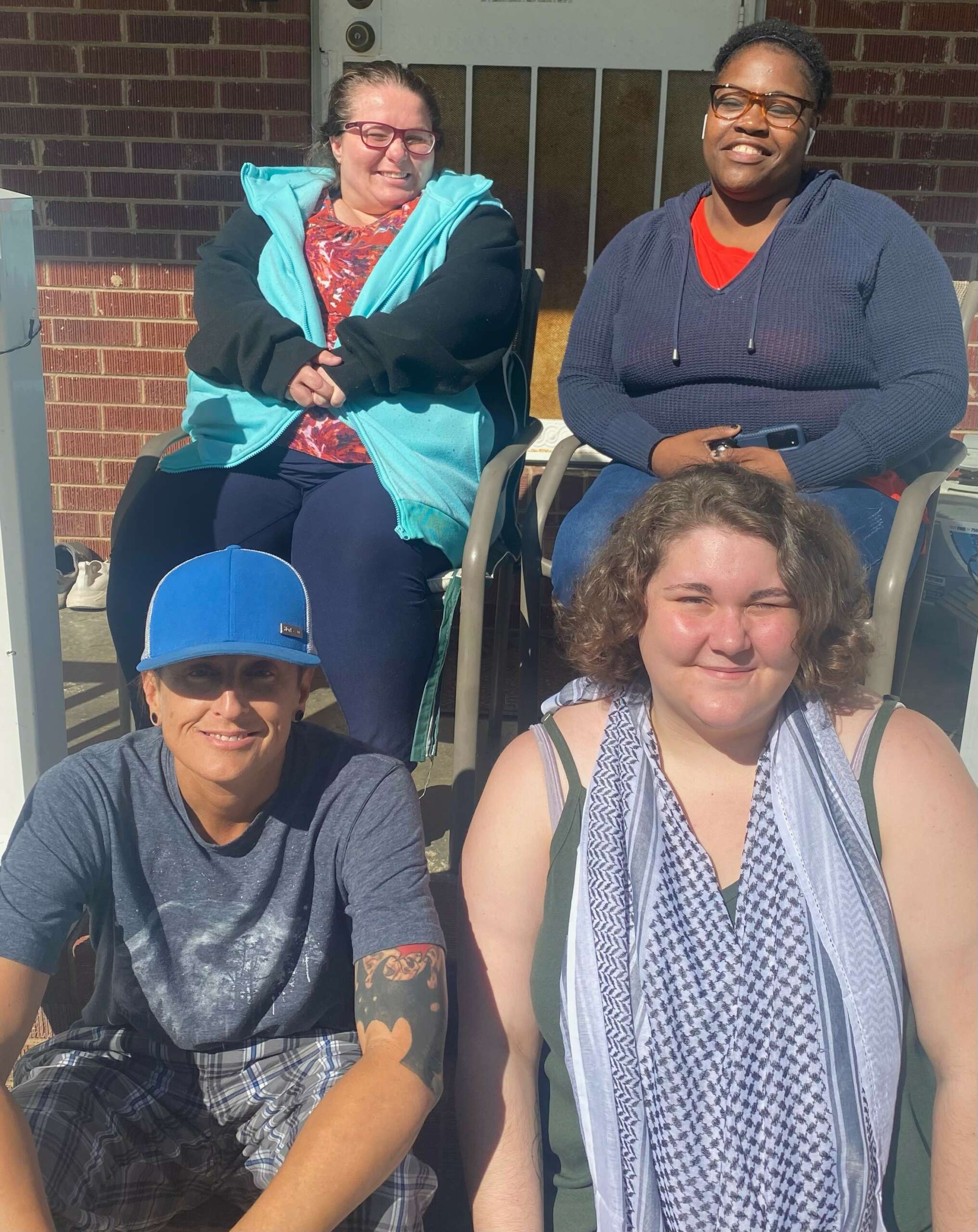Alright – so today we’ve got the honor of introducing you to Cassie Hanson. We think you’ll enjoy our conversation, we’ve shared it below.
Cassie, looking forward to hearing all of your stories today. Can you talk to us about serving the underserved.
Benevolence Farm is a non-profit organization which provides housing and employment to women leaving prisons in North Carolina. Formerly-incarcerated people are one of the most vulnerable populations in America, struggling to secure everything from housing and healthcare to food and employment. Our organization tries to place the foundational elements for sustainable success under formerly-incarcerated women by providing them with survival tools (housing, employment, etc.) and helping guide the beginning of their journey towards self-actualization through investigation into their goals and passions as human beings. In a system where lack of resources drives people back to incarceration, we are hoping to be a compassionate safe haven to give support.
We are aimed at providing dignity, agency, and empowerment to people who historically have been traumatized by systems of oppression. Statistics show that a huge amount of people entering incarceration have a history of trauma (36%, Bureau of Justice Statistics), a cognitive disability (23%, Bureau of Justice Statistics), or a history of addiction (65%, National Institute on Drug Abuse). We believe that these illnesses in combination with systemic violence are more often than not the leading impetus towards incarceration, not an inclination towards violence or a need for punishment. We are working to build a world in which communities take accountability for their most vulnerable members before they become imprisoned, and we are passionate about pursuing creative alternatives of accountability, healing, and rehabilitation in communities.
It’s pretty difficult to just tell one story that illustrates the overwhelming systemic barriers formerly-incarcerated women experience, but I’d like to illustrate an example case study based solely on anecdotal issues I regularly encounter during my work with clients. Jane Doe is leaving prison after serving time for a drug manufacture conviction. She is a mother with dyslexia and PTSD. Let’s try to find housing, employment, and food for Jane.
If Jane doesn’t get into a reentry program, she will by default be sent back to her county of conviction, which is less than ideal because this is likely the same community she used drugs in. She does not have any money, clothes, or food, so if she wants any of those things, she will have to borrow them from someone. Without a car or public transit in her area, she struggles to search for a ride to her first probation appointment, so is worried about picking up a probation violation. She wants to get on the right track so she can start the reunification process with her children, who are in foster care. All of these initial needs will likely drive her back into a position of needing to ask people in her old community for aid, many of whom may be still living her old lifestyle.
Jane tries to find housing. She looks for some rentals first, but almost every property manager refuses her application after a background check, and the application fees have put her several hundred dollars in the hole already. If she finds a place to accept her record, she may be asked to pay a much higher security deposit because of her past charges, which she can’t afford without a job.
Jane tries to find a job, but is extremely limited in her options due to a lack of stable transportation and a history of criminal involvement. Many employers will not hire her, and the ones that will don’t offer very good job security or require specialized training/digital literacy skills which she lacks from her time in prison.
Jane needs to have the ability to buy food until she gets her job, so she applied for FNS (food stamps) in North Carolina. If Jane has a certain level of drug conviction, she will be banned from receiving food stamps for 6 months to life, so she can’t get food assistance unless she borrows money from someone.
During all this time, Jane is also struggling severely with her mental health, experiencing triggering situations in her old community that threaten to cause her to relapse or have a mental breakdown due to her PTSD. She is without mental health care or physical healthcare, and even if she had those things, she doesn’t have any way to get to those appointments until she receives Medicaid. She also struggles to navigate applications for government benefits due to her dyslexia, and is unfamiliar with resources that could help her apply. Because she is also a mother, she is filled with shame and fear at the reality that she may not be able to regain custody of her children for quite some time, and fears they may be adopted before she is able to get her feet underneath her.
This example may seem extreme and specific, but includes real examples from clients I have worked with, and these stories are disturbingly typical. More than 1 in 4 people leaving prisons have complex trauma like Jane, and more than 1 in 5 have a cognitive impairment. More than half of women leaving prison are in recovery and are mothers. Between 40% and 50% of people who leave prison will recidivate due to these barriers; this is a statistic we believe can be changed through providing the security many formerly-incarcerated people lack.

Great, appreciate you sharing that with us. Before we ask you to share more of your insights, can you take a moment to introduce yourself and how you got to where you are today to our readers.
Benevolence Farm is a non-profit organization located in Alamance County, NC which seeks to cultivate leadership, promote sustainable livelihoods, and reap structural change with individuals impacted by the criminal legal system in North Carolina. Our flagship program — transitional housing and employment — provides a space for women returning home from prison and jail to process, heal, and prepare for what’s next in a rural setting surrounded by nature. Women who are accepted into our program live in our farmhouse for up to two years and work part-time on our horticultural farm, the flowers and herbs from which are then infused into the candles and body care products that we sell as part of our social enterprise. The combination of safe, secure housing and the confidence built through employment put our residents on a wonderful path towards success and self-love. Because we are a rural reentry program, many of our applicants seek us out if they are looking for a quiet community to help them heal after incarceration, or if they find our setting in nature to be therapeutic.
I’m the Reentry Operations Director for Benevolence Farm; I oversee case management and provide logistical assistance to our residents at the farm (and to residents at our second-phase location in Burlington, NC). I am often prospective applicants’ first contact with the organization as the primary liaison for application processing and prospective client interviews. I also organize residents’ transportation from prison, help them apply for government benefits, help them create and achieve goals, assist them in finding secure housing and employment after the farm, and generally try to ensure that they are feeling healthy, happy, and productive during their time with us.
I have almost no qualifications that would guide me towards this work; I’m not formerly-incarcerated and I have a BM and MM in classical music performance. But I ended up becoming passionate about justice work from my experience with systemic violence in the realm of disability. I grew up with two disabled parents, and while they worked tirelessly to provide for our family, I witnessed first-hand how systemic violence does not support those who have individualized needs which are deemed “untenable” by their communities. When I started to learn how interconnected disability and incarceration are in America, I started to become more interested in shifting the statistic that people living prison face, and advocating for a change in the way we utilize incarceration as a catch all for individuals that society does not want to care for. I have no illusions that, had my parents’ situation been slightly different, we could have easily been a family impacted by the carceral system, and I want to make sure that Sword of Damocles doesn’t continue to cause fear and shame for other families whose needs can be met outside of the corrections department.
I really strive for individualized care in my work with residents; even though most of my clients face similar barriers, everyone is different and has unique needs, goals, and avenues towards success and self-actualization. I feel most proud when a resident verbally acknowledges their own progress or pursues opportunities and relationships that are deserving of their energy. It shows a great deal of self-love and is a good indicator that they are starting to identify their own value in the world, rather than feeling like they have failed or living in fear. We love to use the analogy of “planting a seed” on the farm; when we plant seeds of confidence, love, and wellness in our residents, we almost always see it come back tenfold. As soon as someone starts to love themselves sincerely and build their confidence, they immediately turn it into an outward drive to uplift others and their communities. When their laser focus on surviving turns to ponderous reflection on what will truly bring them joy and fulfillment, that is the moment I am most proud of my clients and the support we’ve placed under them.

Can you tell us about a time you’ve had to pivot?
Like I’ve mentioned, I was initially set up to become a classical clarinetist! I got my MM in 2020 right at the beginning of lockdown and I started working for a college music department in November of that year. I was finding myself frustrated in academic music by that time (from my time as a student and now from my time as a young professional).
I was troubled by how much of the industry was politics, pretense, and accolades, and how it felt like the human aspect of artistic creativity was not being centered in the ways I had hoped. I was also deeply troubled by what was going on in the world around me. Where grad school had given me a blissful ignorance to systemic violence, the lockdown gave me time and space to develop my understanding of current events. The death of George Floyd ultimately was the catalyst that spurred me into advocacy and volunteering, as I think is the story for many Americans. When I started volunteering, I started to realize that I could do something like direct service if I was willing to learn it and if I had a good mentor.
I quit my music job in December 2021 and started applying for jobs in direct service. I wasn’t at all qualified to work where I do, but I wanted to be of service. So I reached out to our Executive Director, Kristen Powers, and asked her if she was in need of a part-time employee to help out the organization. I attached my resume and I think I said something like “I’m good at organizing and paperwork.” She thankfully took a chance on me, and I’m now in a leadership position at the farm two years later.
I tell this story to convince someone reading that: yes, you can be an advocate, an organizer, and someone who serves. It doesn’t take a degree, it just takes a willingness to learn, observe, and listen. If you too are disturbed by the issues you see in the world, send that email, go to that protest, and just start showing up. You will meet the people who need to be around you and find the mentorship to build you into the advocate you want to become. I’m so glad I undertook my journey into advocacy, which I’m sure will be ongoing all my life.

How do you keep your team’s morale high?
Everyone at Benevolence Farm is a manager and responsible for morale among staff and clients in some way. I think one thing that is super important among colleagues is that everyone is honest with themselves about their strengths and weaknesses, and no one has qualms reaching out to get someone else’s strengths involved. I’m good with letter-writing and keeping information organized. I am horrible at handling legal documents, but our ED is incredible at that. I’m also not a great networker, so I often ask my colleague Mona for help with reaching out because she has a great natural ability to connect with people.
I think it’s also important to be honest with yourself about interpersonal strengths and weaknesses when doing direct service. For example, I have kind of a dry and cynical sense of humor; sometimes, that can get a big laugh and ease tension, but sometimes it’s not the best thing to calm down a client in crisis. I’m always watching my colleagues and clients interact when one person is in a bad spot to learn how to develop my other tools for helping morale.
I think setting healthy boundaries is one of the best things you can do in direct service to keep everyone happy and well-managed. When I first started out, I wanted to work 16 hours a day and constantly answer the phone day or night for anyone who needed me, but that pattern burned me out very quickly. It’s really crucial to my wellness that I communicate the hours I’m available to my team, and then don’t allow myself to be available outside of those times. It’s also crucial to client wellness! I need to make sure my clients trust me and find me dependable as someone to lean on; if I burn myself out and come to a point where I can’t fulfill the duties I’ve promised them, I’ve put them back in a feeling of insecurity and fear, which is the very last thing I want to do. Definitely strive to set realistic boundaries with your team and clients that you can uphold close to 100% of the time.

Contact Info:
- Website: benevolencefarm.org
- Instagram: @benevolencefarm.
- Facebook: Benevolence Farm


